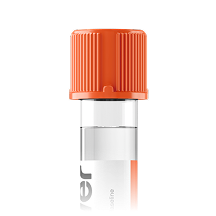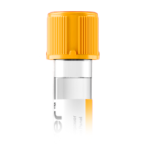Cancer Biomarker Testing
From mutated DNA to overproduction of proteins, learn more about the biomarkers that can suggest cancer.

Testing is performed by CLIA-certified, CAP-accredited reference laboratories. Results support clinician interpretation and risk assessment and are not intended as stand-alone diagnoses or treatments. Superpower reports a mix of direct and derived biomarker metrics.
Plus add-on diagnostic testing available
Access comprehensive tests well beyond mainstream healthcare limits.

Custom blood panels

Gut microbiome

Cancer screening
Developed by world-class medical professionals
Supported by the world’s top longevity clinicians and MDs.




Dr Anant Vinjamoori
Superpower Chief Longevity Officer, Harvard MD & MBA

Dr Leigh Erin Connealy
Clinician & Founder of The Centre for New Medicine

Dr Abe Malkin
Founder & Medical Director of Concierge MD

Dr Robert Lufkin
UCLA Medical Professor, NYT Bestselling Author

membership
$17

.avif)
.avif)

Superpower
Membership
.avif)
Your membership includes:
- Annual full body testing across 100+ biomarkers
- A custom action plan built on your biology and goals
- 17 health scores and your biological age
- Al Chat to dig deeper into your data
Many concierge clinics charge $10k – $100k for their services, we’ve built technology to make the world’s best healthcare as accessible as possible.
You will be able to schedule a 15 minute appointment (blocked out just for you) at one of our partner clinics. At home visits can also be scheduled for an additional fee.
- Understand your results in a beautiful dashboard
- 24/7 message access to a concierge care team, with answers within 24 hours on weekdays
- Lab draw at-home option (extra charge)
- Only one draw needed rather than two thanks to our partnership with Quest
- Discounted access to our supplement marketplace. Highly curated brands at big savings for the lifetime of your membership
- Personalized action plan
- AI chat with all of your data
No insurance needed. One flat fee, no co-pays or surprise charges. HSA/FSA cards accepted.
Superpower specializes in prevention-based testing and treatments and is not intended for emergency or immediate health issues.
While you will have a Superpower concierge, your annual membership is designed to complement a primary care doctor if you have one, not replace them.
We are happy to help you share any test results with an outside provider to ensure you receive well-rounded medical care.
Most primary care doctors aren’t trained to run this kind of advanced testing. We’ve negotiated special lab rates so we can offer 100+ tests at a fraction of the usual cost — often 1/4th the price.
The Superpower Baseline Panel is already comprehensive.
It covers 10 times more biomarkers than a typical annual physical.
The Advanced Panel is designed to go deeper, with three scenarios in particular.
- Uncovering risks that don’t show up in standard labs
Markers like Lp(a), LDL lipoprotein fractionation help identify cardiovascular risk even when cholesterol looks normal.
- Know what drives energy, metabolism and hormones
Tests like insulin, IGF-1, thyroid antibodies, and inflammatory markers explain symptoms that basic hormone tests can’t.
- Reveal deeper patterns
Inflammation, autoimmunity, and nutrient markers (e.g. homocysteine, ESR, thyroid antibodies) can show what’s driving long-term health trends.
Individuals with family history of heart disease, unresolved symptoms, or a desire to understand inflammation and hormone health especially benefit from testing.







Frequently Asked Questions
Read more- A trained phlebotomist will guide you through the process.
- A tourniquet is placed on your arm, the site is cleaned, and a small needle is used to collect blood into one or more tubes.
- Results are usually ready in about a week.
- Most people feel only a quick pinch.
- The needle is removed, gentle pressure is applied, and a bandage is placed.
- Drink plenty of water beforehand — hydration makes veins easier to find.
- Wear loose sleeves so your arm is easy to access.
- Follow any fasting instructions you’ve been given.
- Let us know if you’re on medications, have fainted before, or have needle anxiety.
- Press gently on the site for a few minutes.
- Keep the bandage on for 4-6 hours.
- Skip heavy lifting or strenuous exercise for the rest of the day.
- Drink extra water to rehydrate.
- Monitor the site for redness, swelling, or pain.
Your membership includes:
- An annual full body test and report across 100+ biomarkers
- A personalized action plan to optimize your biomarkers and reach your health goals
- A dashboard to centralize your health data and track changes across a lifetime
- Access to a health concierge for questions on your plan and help scheduling
- Plus a marketplace of curated health products and services cheaper than amazon
Many concierge clinics charge $10k – $100k for their services, we’ve built technology to make the world’s best healthcare as accessible as possible via an all-in-one membership.
Superpower is currently available in the following US states:
- Alabama
- Arizona
- California
- Colorado
- Connecticut
- Delaware
- District of Columbia
- Florida
- Georgia
- Idaho
- Illinois
- Indiana
- Kansas
- Maine
- Maryland
- Massachusetts
- Michigan
- Minnesota
- Missouri
- Montana
- Nebraska
- Nevada
- New Hampshire
- New Jersey
- New Mexico
- New York
- North Carolina
- Ohio
- Oklahoma
- Oregon
- Pennsylvania
- South Carolina
- Tennessee
- Texas
- Utah
- Vermont
- Virginia
- Washington
- West Virginia
- Wisconsin
Superpower specializes in prevention-based testing and treatments and is not intended for emergency or immediate health issues.
While you will have a Superpower care team, your annual membership is designed to complement a primary care doctor if you have one, not replace them.
We are happy to help you share any test results with an outside provider to ensure you receive well-rounded medical care.
Your annual lab test panel takes about a week to process. We will text you as soon as they become available in your dashboard. Other types of tests may have different testing windows. The Superpower concierge is your own health assistant who helps answer your questions on your results, ensure smooth scheduling, coordination of any office-based tests and navigating you to interface with your care team.
Superpower membership and products are all eligible for HSA/FSA funding.
We see Superpower like a gym membership for those committed to prevention and performance. Superpower is a bridge between wellness and healthcare. Health insurance traditionally focuses on reactive care whereas, at Superpower, we believe it’s never too early to start looking out for your long-term health.
Absolutely — you're not limited to just one. Your membership includes one comprehensive 100+ biomarker blood test each year, but if you'd like to track your progress more closely, you can add extra tests at any time. Each additional full-panel test come at an additional cost. You can order as many as you'd like throughout the year.
It is our belief that if you improve your health, you can improve every other aspect of your life.
However, mainstream medicine has not helped many of us do that.
It is often one size fits all, reacts too late, and misses the full picture.
We built Superpower to change that.






.svg)



.png)